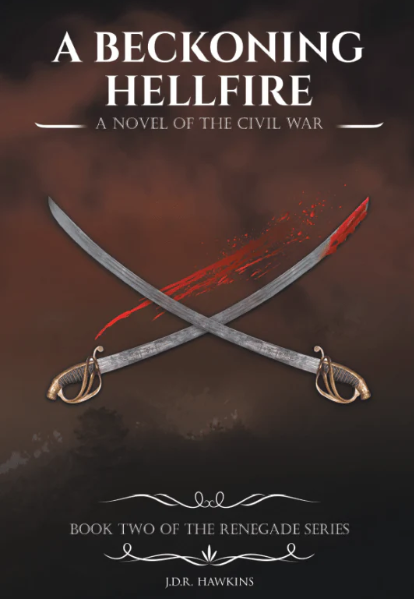Historical fiction war books offer readers an immersive journey into the past, blending factual events with the rich narratives of human experience. Among the best historical fiction war books, those that provide unique perspectives stand out for their ability to shed new light on well-trodden historical events. One notable author who excels in this genre is J.D.R. Hawkins, an Amazon, USA Today, and Wall Street Journal bestselling author known for her compelling Civil War narratives from a Confederate perspective.
- The Confederate Perspective
J.D.R. Hawkins' "Renegade Series" is a prime example of historical fiction that provides a unique Confederate perspective on the American Civil War. Her books, including "A Beautiful Glittering Lie," "A Beckoning Hellfire," "A Rebel Among Us," and "Double-Edged Sword," delve into the lives of a family from northern Alabama. These narratives offer insights into the experiences of those who fought for the Confederacy, a viewpoint often underrepresented in popular literature.
Hawkins' portrayal of the front lines from a Confederate angle nuancedly reveals the motivations, struggles, and emotions of Southern soldiers and their families. This perspective challenges readers to consider the complexity of historical events and the varied experiences of those involved beyond the typical Union-centric narratives.
- Women's Experiences in War
Another unique perspective in historical fiction war books is the focus on women's experiences during wartime. While the battlefield is often the primary setting in war stories, books exploring women's roles and contributions offer a broader understanding of the impact of war. In the "Renegade Series," Hawkins includes characters like Callie Mae Copeland, who provides a glimpse into the lives of women who had to navigate the challenges of war from the home front.
These stories highlight the resilience, ingenuity, and bravery of women who managed households, supported the war effort, and dealt with the emotional toll of having loved ones at the front. Historical fiction, by focusing on women's perspectives, can reveal the full scope of war's impact on society.
- The Soldier's Inner World
Delving into soldiers' psychological landscapes is another approach that adds depth to historical fiction war books. Authors like Hawkins excel at portraying their characters' internal struggles, such as the emotional and mental challenges faced by soldiers. For instance, David Summers in "A Beckoning Hellfire" grapples with grief, vengeance, and the harsh realities of combat.
This perspective allows readers to understand the personal battles that accompany the physical ones, including trauma, fear, and the search for meaning amidst chaos. Exploring soldiers' inner worlds provides a more holistic view of war, emphasizing the enduring human spirit.
- Civilian Perspectives
Historical fiction with civilian perspectives adds another layer of richness to war narratives. The impact of war on civilians—those who endure occupation, displacement, and the constant threat of violence—is a critical aspect often explored in the best historical fiction war books. J.D.R. Hawkins' works often touch on how the Civil War affected families and communities, showing the disruption of everyday life and the resilience required to survive.
By incorporating civilian viewpoints, authors can highlight the broader societal consequences of war, emphasizing themes of survival, adaptation, and the enduring hope for peace.
- Historical Accuracy and Detail
A unique aspect of Hawkins' work is her commitment to historical accuracy and detail, which enhances the authenticity of her narratives. Her nonfiction book "Horses in Gray: Famous Confederate Warhorses" exemplifies her dedication to researching and accurately portraying the era. This attention to detail enriches her fiction, grounding her stories in a well-researched historical context.
Readers of historical fiction war books often seek entertainment and education about the past. Accurate depictions of wartime events, settings, and daily life provide valuable insights and foster a deeper appreciation for history.
- The Human Side of War
Ultimately, the most compelling historical fiction war books illuminate the human side of war. J.D.R. Hawkins' characters are not just figures in a historical drama but individuals with hopes, fears, and dreams. Hawkins and other authors in this genre create a connection between the reader and history by focusing on personal stories, making the past feel immediate and relevant.
These personal narratives remind readers that history is made up of real people whose lives were profoundly affected by the events of their time. This human-centered approach encourages empathy and a deeper understanding of the complexities of war.
The Bottom Line
The best historical fiction war books offer unique perspectives that enrich our understanding of history. Authors like J.D.R. Hawkins provide invaluable insights through Confederate viewpoints, women's experiences, the psychological struggles of soldiers, and the impact on civilians. Her meticulous attention to historical detail and her focus on the human side of war make her works a significant contribution to the genre. By exploring these unique perspectives, readers can gain a more nuanced and comprehensive view of historical events, appreciating the diverse experiences that shape our past.

